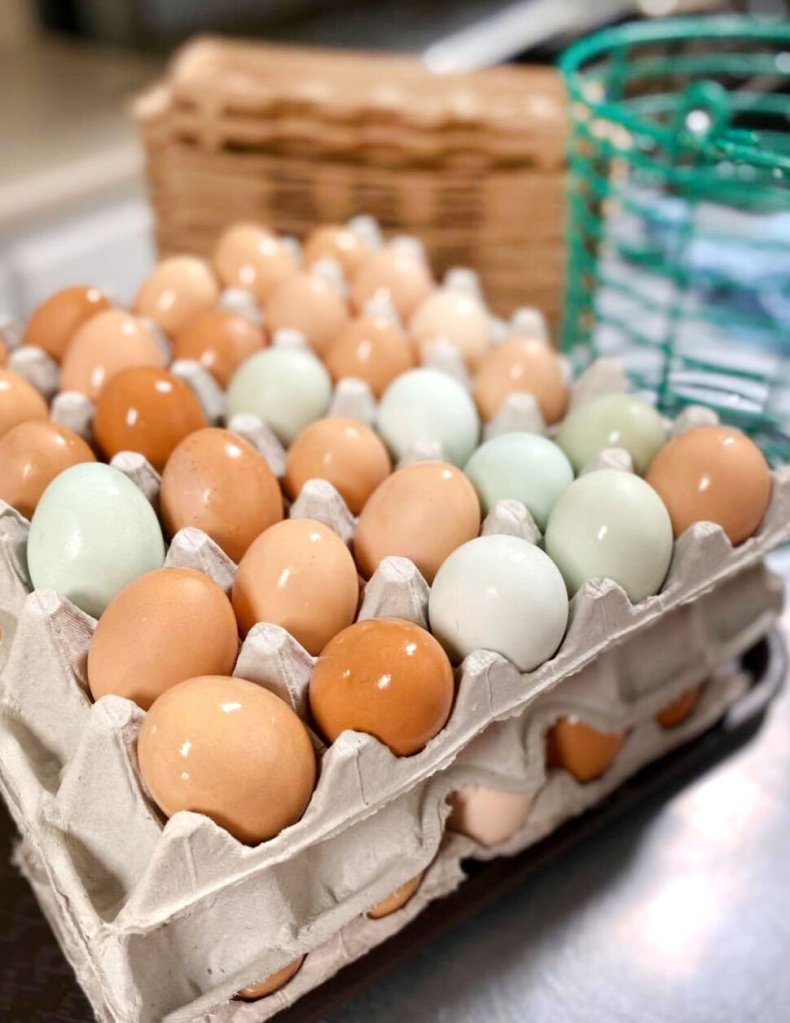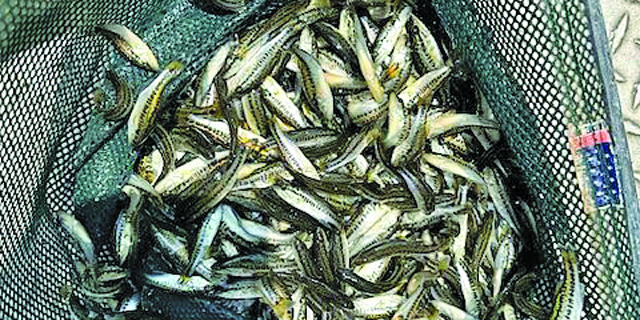Popular tourist destination makes a colorful case for pasture-raised eggs
Published 6:30 am Monday, April 11, 2022

- Photo courtesy of Cedar Hill Farm.
Eggs have been consumed by humankind since the dawn of man. A nutritional powerhouse with exceptional culinary versatility, eggs might just be a perfect food. And if statistics are any indication, Americans love them, consuming an average of 286 eggs per person in 2021.
In Mississippi, eggs and poultry production are big business. Combined, these commodities added more than $2.4 billion dollars to the state’s economy last year, making them the largest contributors to Mississippi’s leading industry: agriculture.
From family farm to agritourism destination
Trending
About five miles outside the city of Hernando, Mississippi, is a community called Love. It’s here that farmer Robert Foster and his family run Cedar Hill Farm, an agritourism destination that attracts thousands of visitors each year.
The story of Cedar Hill begins with Foster’s parents, Mike and Martha, who acquired the 120-acre property in 1989.
Mike held a job off-farm during the week, and the couple raised their family while restoring the overgrown property one acre at a time. Eventually they decided that they wanted the farm to generate some additional income to support its upkeep.
“Back then, agritourism wasn’t something people talked about,” notes Robert. “Farms had roadside stands, pumpkin patches or choose-and-cut Christmas trees, but that’s about it.”
It was Martha who came up with the idea to offer parties for children, and the Fosters opened the farm to the public in 1996. In time, weekends at the farm were filled with children eager to celebrate their birthdays with pony rides and a visit to the petting zoo. During the week, Martha hosted local schools on field trips.
“I had been collecting animals since we moved here,” Martha recalls. “Mike had a full-time job and helped when he could, so it was me and a bunch of women I knew running the business, and it was growing every year.” The idea of agritourism — defined as visiting a working farm or any agribusiness setting to enjoy the rural setting, be educated or be involved in a special activity — was still relatively new.
Trending
Inspired to build on the unique business his parents started, Robert toured the country, meeting with farmers who had large experience-based farms. He pitched the ideas he collected to his parents and by 2005 began transforming Cedar Hill.
Today, Cedar Hill Farm provides guests a variety of opportunities for outdoor fun throughout the seasons, with public events that include Easter egg hunts and summer berry picking. The pumpkin patch, corn maze and Christmas tree field attract an average of 55,000 visitors from autumn through the holiday season each year. Visitors can grab a bite at the snack bar during open-to-the-public events and visit The Country Store gift shop to purchase the farm’s jams, jellies, honey, eggs and other assorted products. A full-service restaurant, the Barn, offers a farm-to-table menu that highlights ingredients produced right on the Fosters’ property.
Tending the flock
Although agritourism is the farm’s primary focus, egg production provides another revenue stream for Cedar Hill. Foster keeps about 150 chickens; the primary breeds represented among his flock are Rhode Island Red, Barred Plymouth Rock, Black Sex Link, Buff Orpington, White Leghorn and Ameraucanas.
The variety of breeds produce a pastel rainbow of eggs, with shell colors ranging from white to various shades of blue, brown and even green. Cracking open a Cedar Hill egg reveals a deep-orange yolk that conveys why “sunny side up” is such an apt descriptor for the soft-yolk style of fried eggs.
Although Foster supplements the hens’ diets with nutrient-enriched feed, Cedar Hill’s chickens forage most of their food while roaming a few fenced acres throughout the day, feeding on vitamin-dense plants and insects, before retiring to their coop for the night.
According to Foster, chickens that are raised on open pasture lead healthier lives. While those raised for meat live longer, pasture-raised birds used for egg production, known as layers, produce eggs that are far more nutritious than those delivered by factory farms.
Educating the community
A primary function of agritourism businesses is educating the public about where food comes from. At Cedar Hill Farm, that means helping people understand the language used to label and sell eggs — as well as explaining why fresh eggs from local farms look and taste different from supermarket eggs.
“There aren’t enough backyard coops and small farmers to meet the demand for eggs,” Robert explains. “I’m not knocking the larger egg production industry, but personally I think if people saw the conditions their supermarket eggs came from, people would turn to eggs from local farms.”
Consumers concerned with healthy, sustainable and humane farming practices often choose to purchase eggs labeled “cage-free,” “free-range” and even “hormone-free.” But even so, the definitions of “cage-free” and “free-range” can be left to interpretation and can, in fact, be misleading. A factory farm that allows its hens only one hour a day to roam outside the coop in a muddy, penned space can use the term “free-range,” as can a farm like Cedar Hill, which lets its hens roam freely all day.
Take “hormone-free,” for example: All American eggs have been free of hormones since the 1950s, so the use of this term could be considered merely a sales tactic. What about the ever-popular “all natural”? This labeling does not translate to an actual methodology or practice on the farm, in the hen house or during the collection, cleaning, packaging and transportation of eggs. (And in case you’re wondering, the same goes for “farm-fresh.”)
“Cage-free” and “free-range” can be even more confusing, as the U.S. Department of Agriculture (USDA) provides limited oversight and no specific metrics for the use of these terms, rendering them relatively useless for conscientious egg buyers. In large-scale egg and poultry production, a cage-free and free-range egg is most often one laid by a hen living in large, overcrowded and dirty pen.
There are certifying organizations that conscientious poultry farmers turn to in an effort to help consumers understand their commitment to providing humanely raised eggs. However, many small farms can’t afford the certification process and choose to emphasize on-farm and at-market education in their communities instead. Cedar Hill has opted for this approach — not just with eggs but also with produce they grow in the vegetable garden that supplies the farm-to-table dining program at The Barn.
3 absolutely amazing dishes that come from a carton of eggs
“I think words like cage-free and free-range should be removed from grocery store produce and eggs. I’ve never seen a large-scale production that can meet the standards I believe most people are imagining when they see those words,” says Foster.
“It’s not reasonable to think everyone can have a backyard chicken coop, but if they want quality, they can likely find a farm in their local area that will provide them with eggs that are fresh and healthy.”





